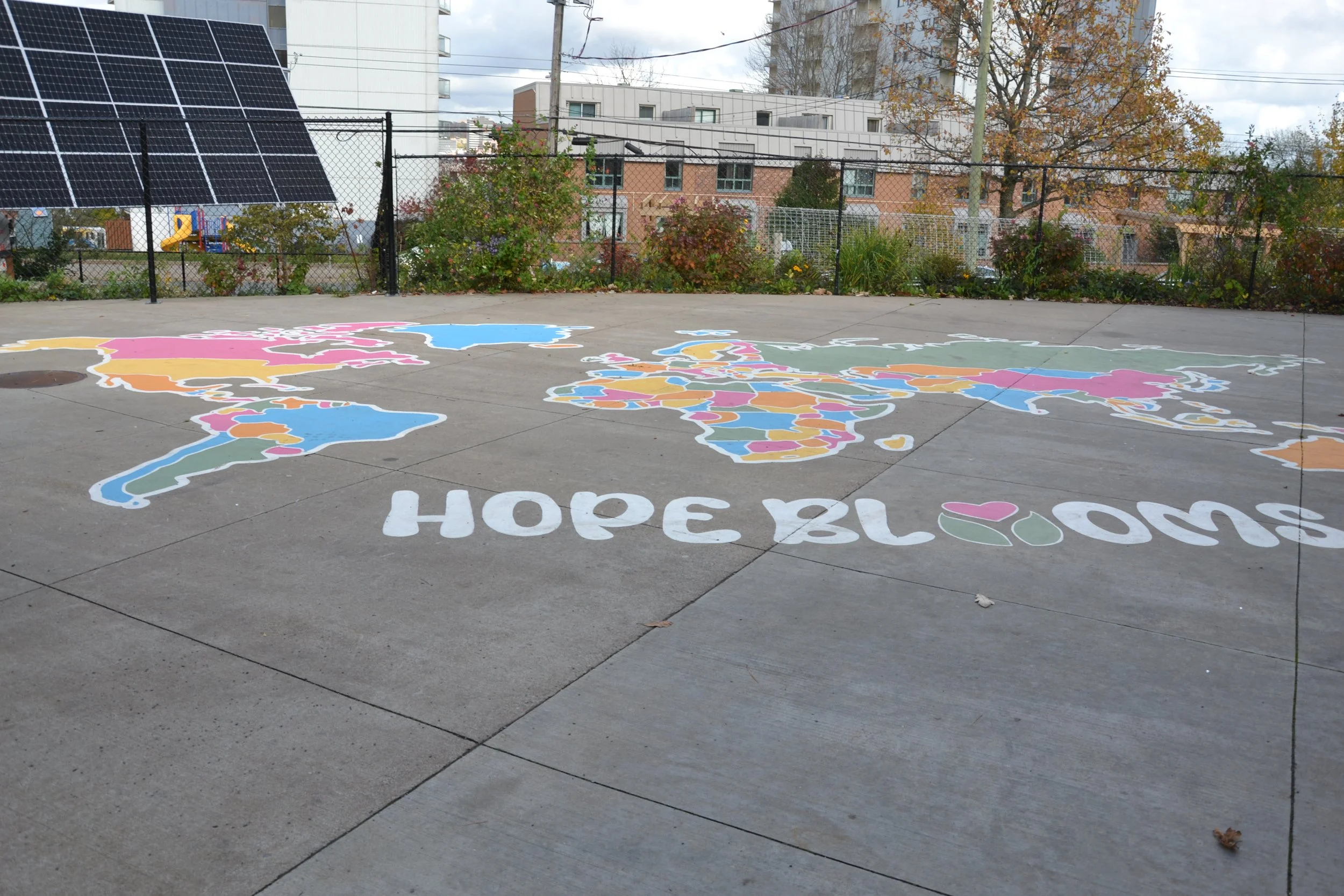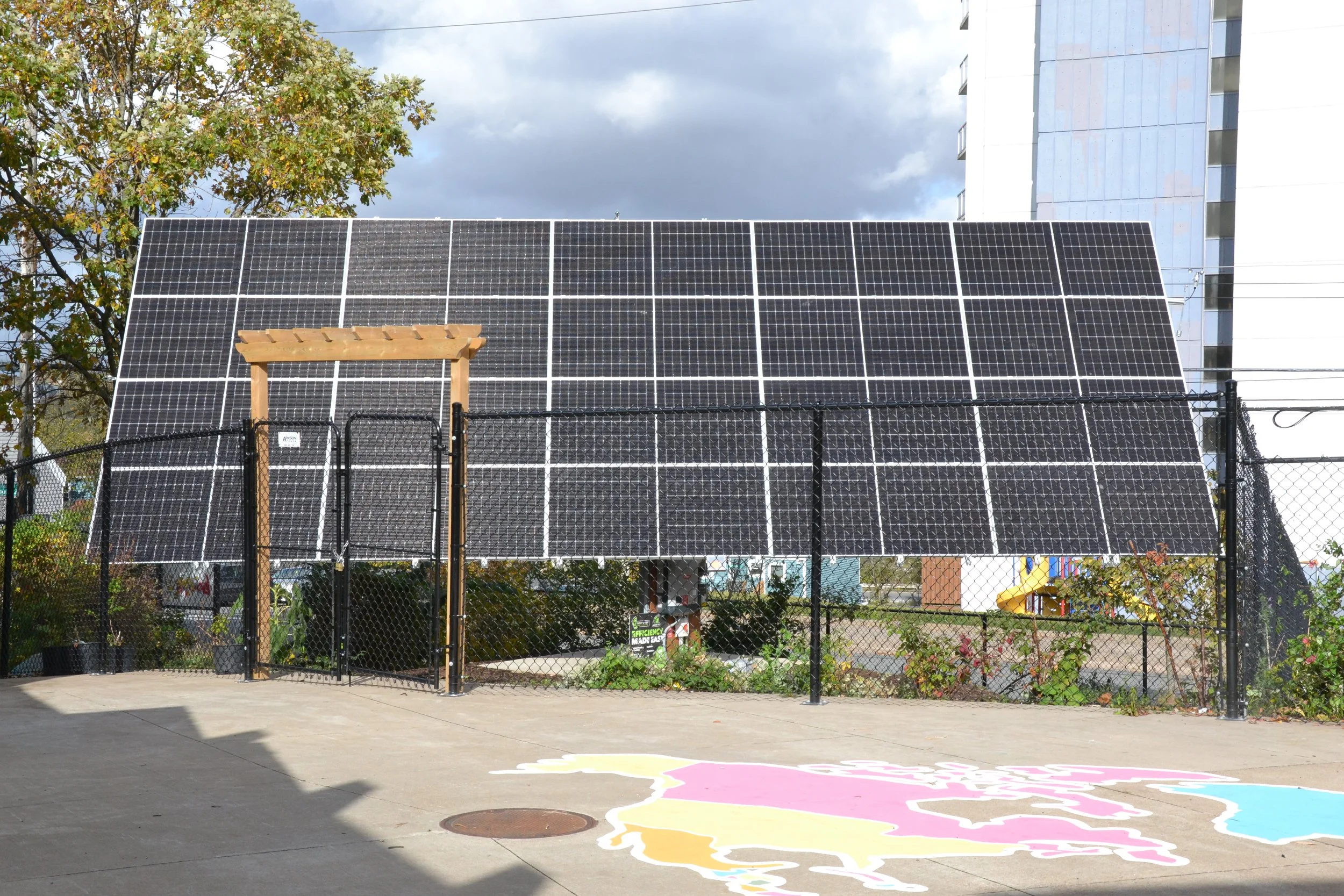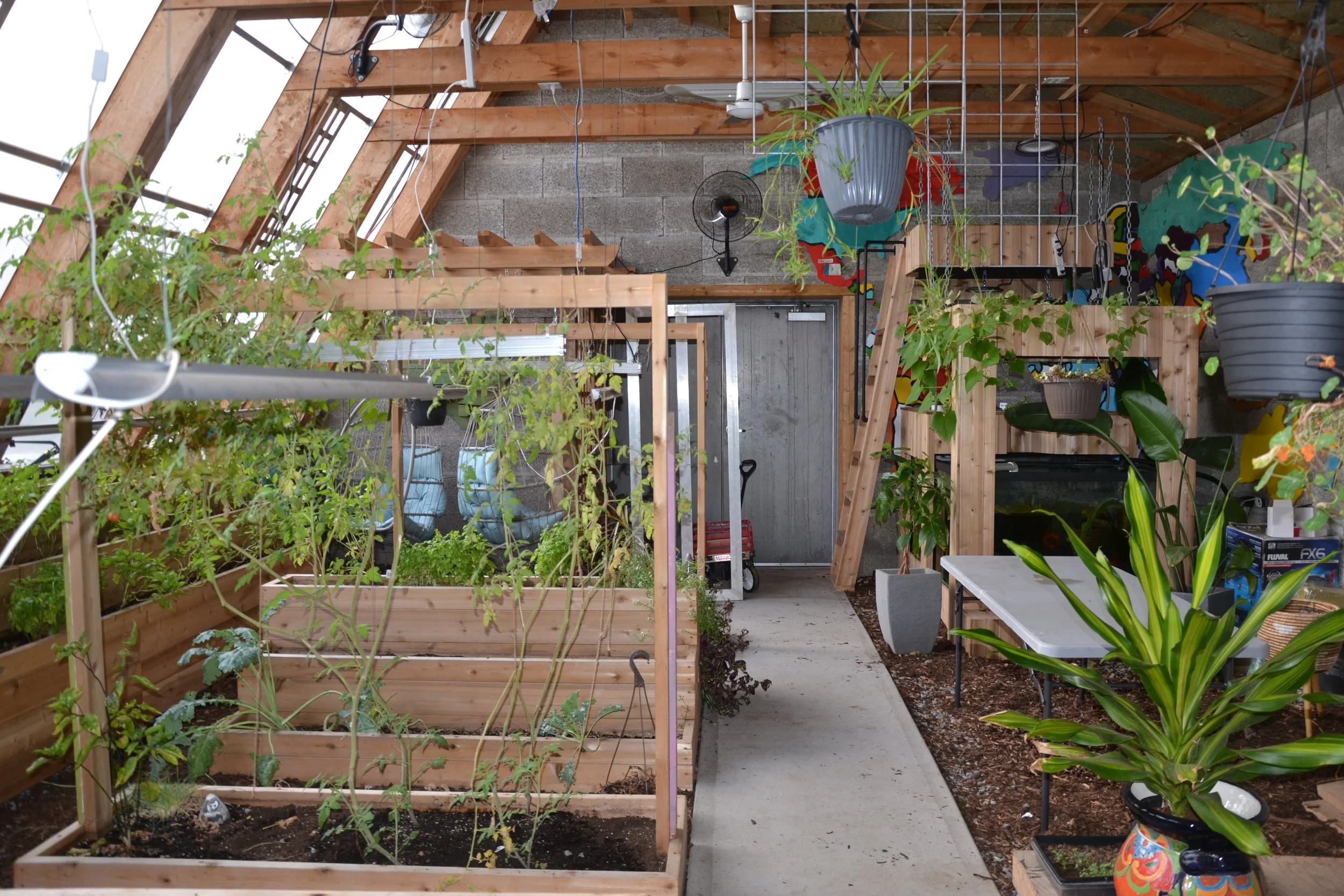Hope Blooms…and thrives
Checking in on Halifax’s Hope Blooms, two years after our first article, only to find they’re now fully renewable and continuing to grow — in more ways than one.
Chalk art blooms and brightens the courtyard area . Photo courtesy of Philip Moscovitch.
It’s a cloudy afternoon in late October, and the new solar tracker at Hope Blooms faces southward, slightly tilted, at the edge of the non-profit’s herb and vegetable garden.
Installed in July, with funding from HCi3 (Halifax Climate Investment, Innovation and Impact) and the provincial Sustainable Communities Challenge Fund, the 10-kW array follows the sun, adjusting tilt and rotation to maximize energy production. The tracker doesn’t just take the position of the sun into account — it also has wind and snow sensors, allowing it to adjust itself and avoid damage from gales or too much of a snow load.
Hope Blooms’ recent addition - a solar tracker, facing west in this pic. Photo courtesy of Philip Moscovitch.
It’s also allowed Hope Blooms to run entirely on renewables for the first time in the non-profit’s 18-year history. Solar panels produce 110 per cent of the energy they need, feeding the surplus back into the grid, says Kolade Boboye, the Hope Blooms Creative Director of Youth Impact Business.
“That alone yields 30 per cent of the power capacity we need here,” he says, nodding towards the tracker. “It’s already saved the [same amount] of CO2 as driving from Halifax to Vancouver and back.”
Located in the North End of Halifax, Hope Blooms serves youth through an array of programs as versatile as the tracker. Founded in 2007 by community dietitian, Jessie Jollymore, it has grown from being an entirely group-run community garden and salad dressing business, to now offering culinary programs, environmental science education, a farmers’ market, a musical program, and more. The programs are all part of Hope Blooms’ mission to meet the needs of historically marginalized youth through education, skill-building, bursaries, and a support network.
Boboye knows the impact the non-profit can have. His family moved from Lagos, Nigeria to Halifax when he was just six, leaving behind a community where, “I could walk down the street, and everyone knew me.” He found that sense of belonging again at Hope Blooms, where he started gardening at seven years old. “That sense of family drew me in,” he says.
The afternoon wears on, and the solar tracker tilts lower and slowly swings towards the west.
The gardens beside it weathered this summer’s extreme drought with the help of a rain catchment system, metal raised beds that retain heat (allowing the gardens to start producing abundantly early in the season, before the drought hit), and lots of mulch, which cut down on the need for watering.
As Boboye stands in the main building — a sun-filled, airy room with colourful couches, artwork, photos, and a commercial kitchen — Jollymore flits from task to task: prepping for an annual audit, talking with three women readying materials for a cooking class, meeting with architects about a plan for a new off-grid music studio, and speaking with a visiting specialist about the possibility of setting up a mushroom farm at Hope Blooms, to provide ingredients for their new mushroom-based coffee substitute.
Hope Blooms began with a focus on community gardens and combating food insecurity. While it’s expanded, Boboye says climate action is inseparable from its activities.
Hope Blooms greenhouse, built in 2016. Photo courtesy of Philip Moscovitch.
“The vision of being off the grid has definitely always been part of our mandate. It's hard to separate food insecurity and agricultural innovation, and not include environment and climate,” he says.
He adds, “Through the process of having an agricultural garden, having the greenhouse — you can't really leave that environmental appreciation out of it... All our social enterprises are completely run in a solar-powered facility. I feel like we don't advertise that a lot, but we want to have a stake in this green future. We want to actively be forerunners. And if we can inspire and learn from others, we want to do that too.”
Climate Stories Atlantic is an initiative of Climate Focus, a non-profit organization dedicated to covering stories about community-driven climate solutions.
Sign up for notifications of our latest free articles. You can unsubscribe at any time.



